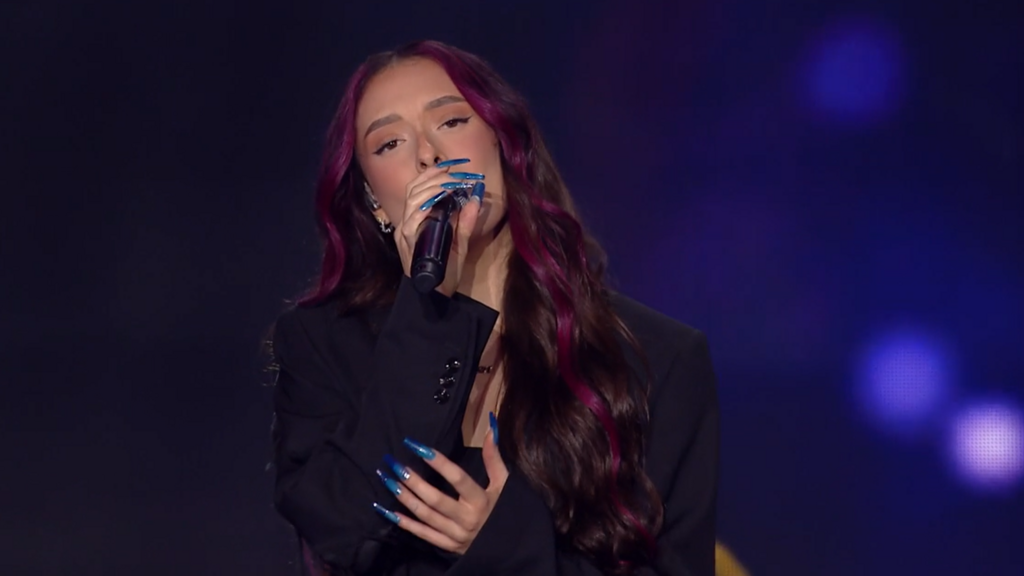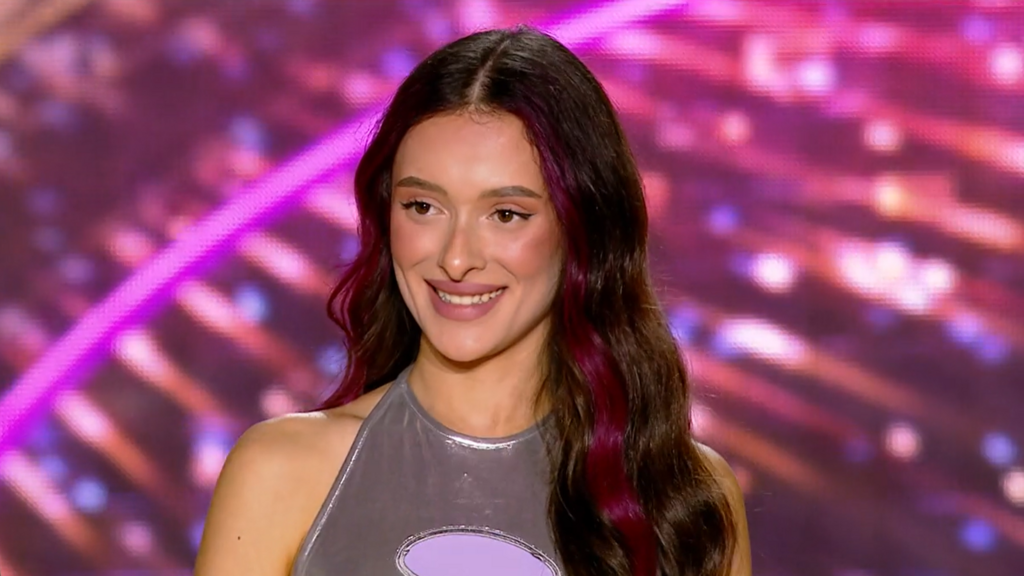Getting your Trinity Audio player ready...
In Israel's latest Eurovision drama, its entry Hurricane has leaked online and supporters of the Palestinians on X were quick to brand the song as propaganda, further fueling the controversies surrounding the Jewish state's participation in the European song contest amid its war against Hamas in Gaza.
2 View gallery


Eden Golan will represent Israel at Eurovision in May in Malmö, Sweden, after winning the reality show The Next Star for Eurovision
(Photo: Courtesy of Keshet)
Ynet has learned that Israel's public broadcaster Kan is working to remove the leak from social media networks.
The song is set to be unveiled Sunday night at 9:30 p.m., marking the conclusion of a tumultuous several weeks. Concerns had been raised over the possibility of the European Broadcasting Union (EBU) rejecting Israel's original entry titled October Rain for its supposed political messaging, which could have resulted in Israel finding itself outside the competition.
Following the threat and diplomatic overtures to resolve the crisis, Kan agreed to change the lyrics of the song, and last week it was officially announced that the European Broadcasting Union determined that the revised song, Hurricane, could compete in the Eurovision Song Contest to be held in Malmö, Sweden.
"There is no doubt that they made the right choice to let us participate this year," said Eden Golan, the singer who will represent Israel at Eurovision. "This year it is more important than ever that we stand on this stage and represent our country with respect."
Supporters of Palestinians in Gaza took to social media to condemn Israel's song and its participation in the song contest.
Read more:
"So instead of an 'October Rain' falling on Isreal on Oct 7th Eurovision gives us a 'Hurricane' on Gaza on Oct 8th?" wrote one X user.
"Looks like @Eurovision allows the genocidal Jewish ‘State’ to participate in their contest while committing genocide in Gaza. In your face Zionists call their entry ‘hurricane’," posted another.
'We will storm the stage booing while holding palestine flags and pictures of gaza like a hurricane if israel are not disqualified," read another post.
Two days before the official confirmation, Ynet learned that several officials at the Foreign Ministry expressed cautious optimism regarding Israel's participation in the competition. "Foreign officials received messages that the EBU is expected to approve the new song," said a source involved in the details.
Last month Ynet learned that the EBU was considering disqualifying the original song chosen by the professional committee in Israel for Eurovision, and that Kan had decided not to change the lyrics and the name of the song. However, following the involvement of President Isaac Herzog Kan had decided to be flexible and try to find a way to send a revised song.
"We realized that the committee that approves the songs would do everything to disqualify us," said officials privy to the details, "and therefore we decided to do everything to be there. We were sure that it was a matter of a few words, but when we realized that there was a high chance that we would not be approved, we decided to try and be flexible."
Eurovision week, which will include the two semi-finals and the festive final, begins on May 5. Israel will take part in the second semi-final. The first semi-final will take place on May 7, and the countries Slovenia, Iceland, Ukraine, Cyprus, Poland, Serbia, Finland, Lithuania, Portugal, Australia, Azerbaijan, Moldova, Croatia, Ireland and Luxembourg will compete in it. In addition, the first semi-final will feature Great Britain and Germany, which belong to the Big Five who automatically advance to the final, as well as Sweden, last year's winner.
Israel will compete in the second semi-final which will be held two days later, since the first semi-final falls on Holocaust Remembrance Day eve. Golan will compete against the countries of Austria, Albania, Estonia, Georgia, Malta, the Netherlands, Switzerland, Norway, Latvia, Greece, San Marino, Belgium, Armenia, Denmark and the Czech Republic. Spain, Italy and France also will appear in the second semi-final.




